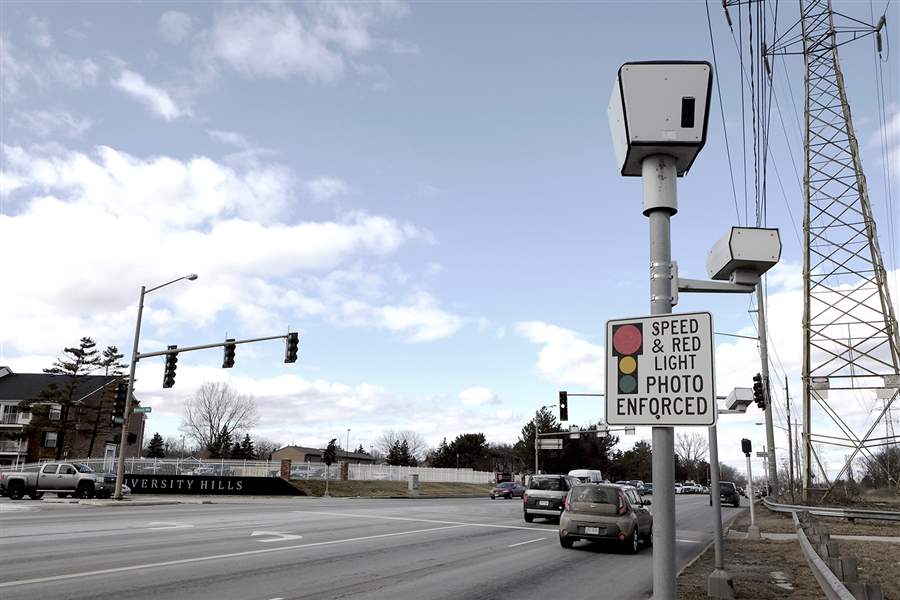
Ohio Supreme Court strikes down limits on red light cameras
7/26/2017
The traffic camera on Douglas Road at University Hills Boulevard in Toledo, Ohio on February of 2016.
THE BLADE
Buy This Image
COLUMBUS — The Ohio Supreme Court struck down several state provisions that limited how cities such as Toledo could use red light cameras.
The justices voted 5-2 in a ruling Wednesday, which should secure the city of Toledo’s use of stationary red light and speed enforcement cameras.
RELATED: Debate argues merit of red-light cameras
“Home rule is the big principle involved here,” Toledo law director Adam Loukx said, adding that the decision means the status quo will be maintained for the city’s 43 fixed-location traffic cameras.
Justices Pat Fischer, Maureen O'Connor, Judith French, Sharon Kennedy, and 5th District Court of Appeals Judge Craig R. Baldwin voted in the majority.
Justices William O'Neill and Pat DeWine — son of Attorney General Mike DeWine whose office defended the law — dissented.
All are Republicans except for Justice O'Neill.
The city of Dayton had challenged a state law that took effect in 2015, arguing it improperly limited local control and undercut camera enforcement that has made cities safer. The court struck down provisions that required a police officer be present at the location of a traffic camera, that the fines cannot be issued unless a driver is traveling more than 10 m.p.h. over the speed limit in most areas, and that required cities conduct a safety study and public information campaign before the cameras are used.
The state countered that the law is within the legislature’s powers as a “statewide and comprehensive” way to regulate enforcement of traffic.
Critics say cities use them to boost revenues while violating motorists’ rights. The city of Toledo budgeted $2 million in revenue from the fixed cameras, and have collected $881,543 through the end of June.
The state’s highest court has twice previously ruled for cities on cameras. Mr. Loukx said he expects the city’s case, which was pending before the state supreme court until this case was decided, will be decided in the coming days based on the Dayton decision.
Information from the Associated Press was used in this report
Contact Zack Lemon at zlemon@theblade.com, 419-724-6282 or on Twitter @zack_lemon.